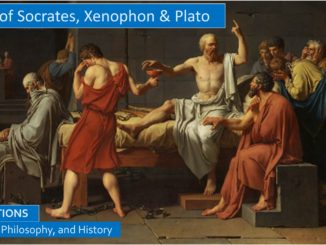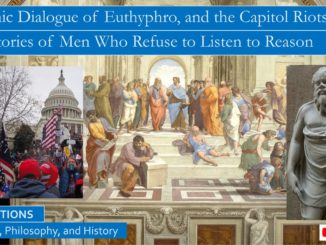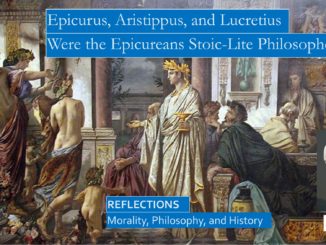
Sentencing and Execution of Socrates in Apology and Crito, Blog 2
In the end of his speech to the jurors who will decide whether he will live or die, he says, “Judges, be of good cheer about death, and know for certain that no evil can happen to a good man, either in life or after death.” Socrates is forgiving. “I am not angry with my condemners, or with my accusers; they have done me no harm. Although the did not mean to do me any good; for this I gently blame them.” […]


